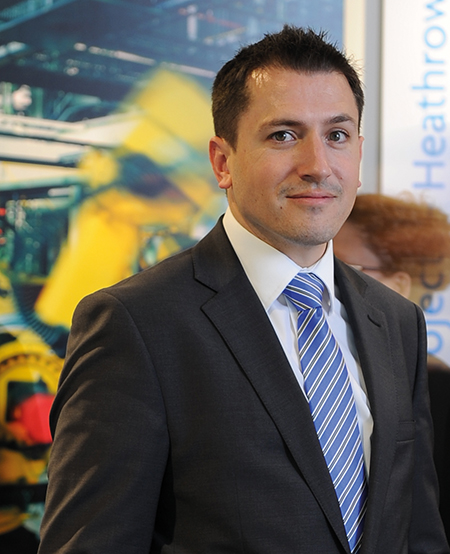Strong leadership is arguably the most important aspect of running a business, but today’s leaders are required to operate in a substantially more volatile, uncertain and complex world. Seasoned leaders are sought with 20/20 foresight, but they are wanted now; there is limited patience for the traditional lengthy programmes and processes needed to develop them.
Becoming a nuanced, respected leader can take years of self-development and time spent in lectures and coaching sessions. However, a new study that analysed the physical, emotional and learning responses of individuals in realistic simulations suggests that the long road to strong leadership could very well be bypassed.
The research, carried out by Ashridge Business School and the University of Reading, sheds light on the type of development activities that best prepare managers to think more clearly when under stress.
It reveals that experiential learning, or simulated experiences, can effectively mimic the stress of leadership and, through building leaders’ ‘muscle memory’, help participants feel better resourced to deal with the critical incidents they will face.
Participants on Ashridge’s The Leadership Experience: Leading on the Edge programme took part in simulated realistic high-pressure Board-level experiences – such as dealing with conflict, managing change and high-level decision-making – to mimic the working life of leaders.
The programme participants wore heart-rate variance monitors to analyse their physiological responses to these critical events. This physiological analysis was supplemented by psychological data collected through psychometric tests and feed-back surveys.
The rationale behind the study was that simulated experiences are as valuable from a learning perspective as actual real-life situations, leading to physiological changes and brain muscle development. Helping executives to practise their emotional responses in an academic environment should help them perform better in a live crisis situation.
Human behaviours are learnt through emotional responses to the experiences that we all have. These responses manifest themselves in the creation of ‘muscle memory’, forming new neural pathways. These pathways form the basis of learning during new experiences, enabling us to quickly refer back to the responses that are learnt – so when you have to do it when it really matters, you do it almost automatically.
In this way, practising in a simulated environment is as effective as real life – in the same way that pilots practise in aircraft simulators.
The key to guiding participants through the simulation process is to create an environment that elicits a state of emotional arousal that feels challenging but that can be overcome.
Neurobiologically, when a stressful situation is perceived as a challenge, the brain and body become moderately aroused, optimising brain functions such as decision-making, learning and memory formation. However, if a situation is perceived as a threat, we become over-aroused and prepare for retreat, reducing cognitive functioning.
A situation is perceived as a challenge or a threat depending on whether we believe that we have the personal resources and skills to deal with it. It is through the simulation process that these mental skills are created, forming new muscle memory in the brain, and changing our perception of future situations.
The findings of this research have significant implications for the way that development programmes for leaders are designed and delivered. They show that it’s not just pilots, surgeons, F1 drivers or astronauts who benefit from simulation exercises to prepare for highly stressful and challenging incidents – business leaders do too.
About the Author
Dr. Megan Reitz and Lee Waller, Ashridge Business School
The research is published in a report entitled The Neuroscience of Leadership Development: Preparing through experience.
The research was conducted by Ashridge Business School leadership experts Dr. Eve Poole, Dr. Megan Reitz, Lee Waller, Angela Muir and John Neal, together with Professor Patricia Riddell, Head of the Department of Psychology, University of Reading.
From Pioneering Research To Cutting Edge Practice
 Interview with Rob Pearse, Head of Contractors and Installers, Rexel UK
Interview with Rob Pearse, Head of Contractors and Installers, Rexel UK
How do you lead through inspiration as well as instruction? Rob Pearse, Head of Contractors and Installers at Rexel UK, took part in Ashridge’s The Leadership Experience: Leading on the Edge, and learnt how to use his energy positively to respond well to pressure.
How did you find the experience?
Spending a week sharing thoughts with senior people from other organisations gave me fascinating insights into varying approaches to situations. The business simulation really appealed and I left with practical advice that I could immediately adapt to my everyday work.
What did you learn?
In my first one-to-one session, my tutor suggested I should use the programme to expose myself to risky situations. After that, I experienced many different emotions. In one of the exercises, I became quite confrontational, but it was interesting to see that the others thought I looked calm.
Wearing a heart-rate monitor gave useful insights into how I react physically in situations. When I felt I was at my peak of pressure, the monitor showed a very different picture. It made me realise that the key to improving my performance is to improve my coping methods.
The group feedback sessions were immensely valuable. We discussed how we performed under pressure, which gave you an incredible understanding of yourself.
What has been the impact?
Ashridge was instrumental in enhancing my existing skills, as well as developing new skill sets and equipping me with the confidence to deliver. It has made me a more effective individual and is helping me maximise the performance of my new team. The programme had a huge impact in a short space of time – it is an excellent ROI.
Client Case Study:
SABMiller European Management Development Programme (EMDP)
The SABMiller management development programme is designed according to best practice findings from Ashridge’s ground-breaking neuroscience heart-rate monitor and learning transfer research. The programme has delivered uncontested business impact – supporting revenue growth ahead of competitors, creating a high performance leadership community, driving the business strategy, and delivering a 95% talent retention rate.
The SABMiller programme directly links to the organisation’s current business needs and is central to its business success and growth. In-depth evaluations confirm that the programme builds high-performing teams and positively impacts on organisation performance.
“Our participants are having a learning experience that adds value personally and professionally. Most importantly, it is enhancing the excellence of our leaders and developing our talent pipeline.”
– Samantha Rockey European L&D Manager
For more information, please visit www.ashridge.org.uk


























![“Does Everyone Hear Me OK?”: How to Lead Virtual Teams Effectively iStock-1438575049 (1) [Converted]](https://www.europeanbusinessreview.com/wp-content/uploads/2024/11/iStock-1438575049-1-Converted-100x70.jpg)




